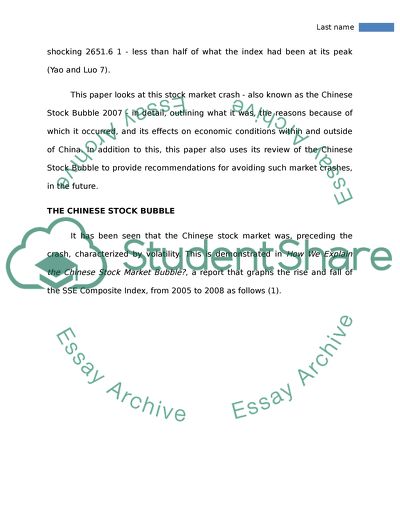Cite this document
(“Chinese stock bouble 2007 Research Paper Example | Topics and Well Written Essays - 1750 words”, n.d.)
Retrieved from https://studentshare.org/finance-accounting/1491725-chinese-stock-bouble
Retrieved from https://studentshare.org/finance-accounting/1491725-chinese-stock-bouble
(Chinese Stock Bouble 2007 Research Paper Example | Topics and Well Written Essays - 1750 Words)
https://studentshare.org/finance-accounting/1491725-chinese-stock-bouble.
https://studentshare.org/finance-accounting/1491725-chinese-stock-bouble.
“Chinese Stock Bouble 2007 Research Paper Example | Topics and Well Written Essays - 1750 Words”, n.d. https://studentshare.org/finance-accounting/1491725-chinese-stock-bouble.


